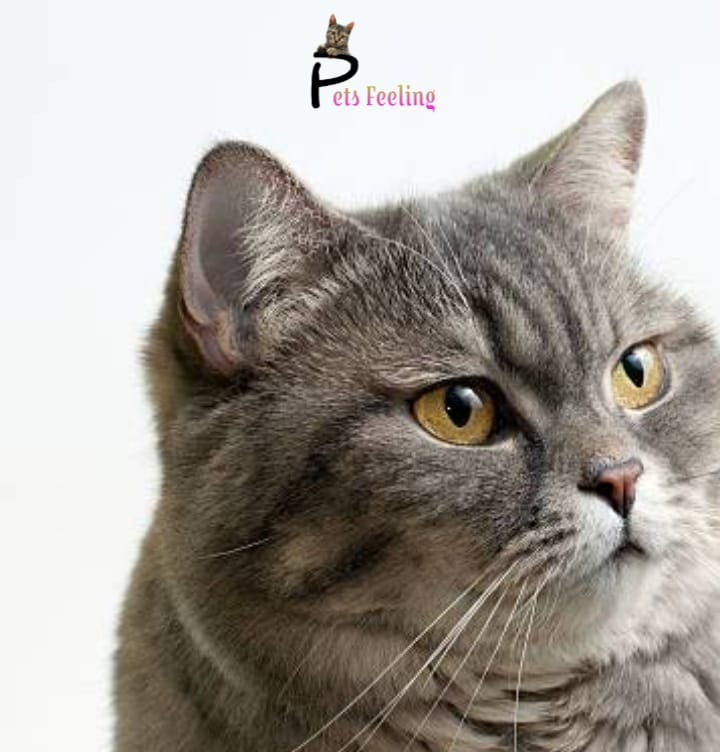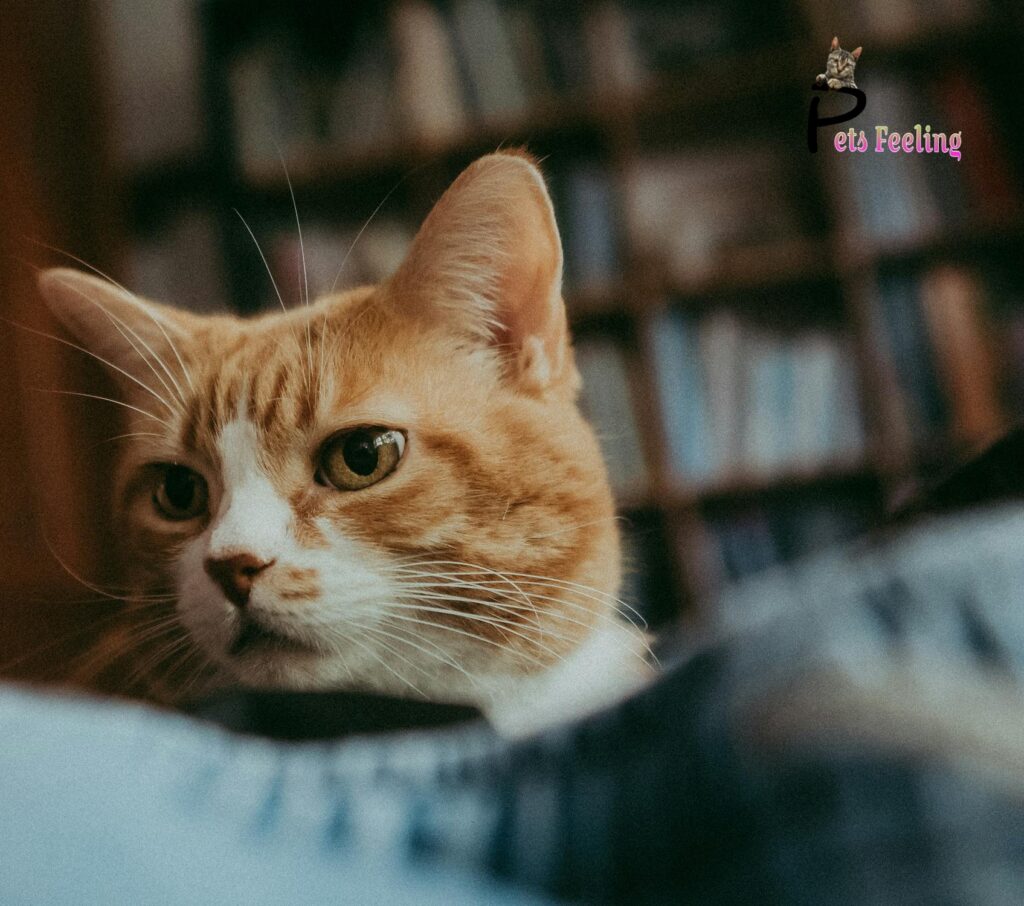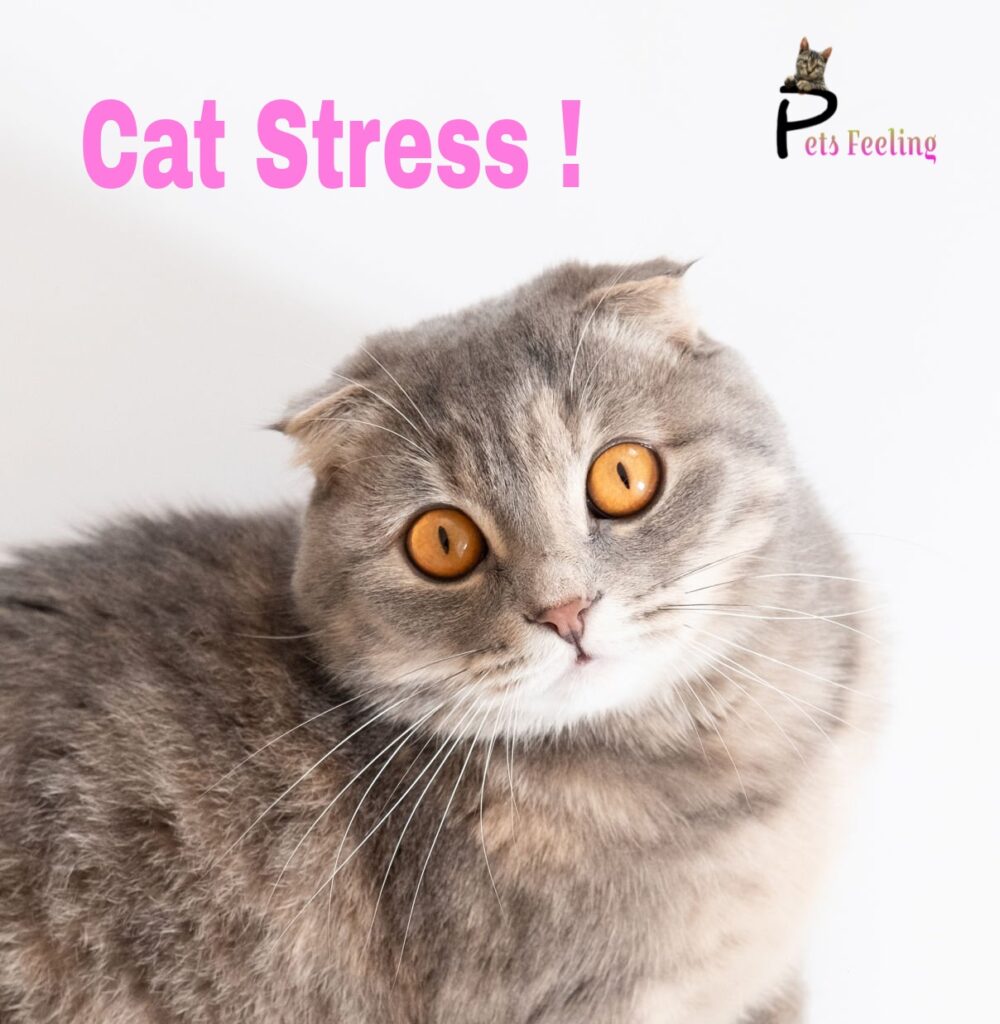The 6 strangest silent signs that indicate Cat Stress and Fear
Ever wonder if your cat is stressed or anxious? Cats often hide their feelings behind a calm face. But, you can spot the subtle signs that show their true emotions.
Take Bella, for instance. She’s usually playful and loving, but lately, she’s been acting differently. She hides more and seems tense. Could she be stressed?
Many cats face stress and anxiety for various reasons. This can include changes in their environment or health issues. If not addressed, it can cause big problems like avoiding the litter box or becoming aggressive.
But, there’s hope. Knowing the signs of feline stress can help you help your cat. In this article, we’ll explore six strange signs that show your cat might be anxious or scared. This way, you can keep a closer eye on your pet’s well-being.

Key Takeaways
- Cats are experts at hiding their emotions, so it’s key to spot subtle signs of stress and anxiety.
- Common stressors for cats include changes at home, new people or pets, and health issues.
- Recognizing signs like overgrooming, hiding, and avoidance can help you address your cat’s stress and keep them calm.
- Using stress-reducing techniques, like environmental enrichment and pheromone therapy, can help ease your cat’s anxiety.
- By paying attention to your cat’s behavior and seeking vet advice when needed, you can give them the best care.
Understanding Cat Stress
As a cat parent, it’s key to understand feline stress for your pet’s health. Stress can affect a cat’s behavior, physical health, and happiness. Let’s explore what cat stress is and why it happens.
What is Cat Stress?
Cat stress is when your cat feels threatened or challenged. This can happen due to changes, new situations, or other animals or people. Stress can cause bad behavior and harm your cat’s cat health if not handled.
Common Causes of Feline Stress
Cats are very sensitive. Even small changes can stress them out. Here are some common reasons for cat stress:
- Changes in their daily routine or living environment
- Lack of cat enrichment and mental stimulation
- Conflicts or interactions with other pets or household members
- Lack of a stress-free environment for cats
- Underlying medical conditions or pain
- Loud noises or sudden, unexpected events
Knowing these causes of cat stress helps you find ways to reduce stress in felines. This promotes their cat wellbeing.
Cat Stress Signs: The Silent Signals
It’s important to spot the subtle signs of stress in your cat. Some signs of stressed cats are easy to see, like loud meowing or aggression. But there are also quiet signs that show your cat might be stressed. Knowing these cat stress symptoms helps you make a stress-free environment for cats and support them.
Changes in grooming habits are a common but often missed sign of stressed cats. If your cat starts overgrooming or skips grooming, it could mean they’re stressed. Also, if your cat seems very still or hides a lot, they might be trying to avoid stress.
- Increased or decreased vocalization, such as meowing, hissing, or growling
- Sudden changes in sleeping patterns or appetite
- Avoidance of social interaction or hiding for extended periods
- Excessive grooming or fur loss due to stress-induced overgrooming
- Inappropriate elimination or marking behaviors
- Increased aggression or fearfulness towards family members or other pets
By identifying stress signs in cats, you can take steps to help them. You might need to change their living space, use calming pheromones, or get vet advice. With care and attention, you can help your cat live a happy, stress-free life.

Overgrooming: A Telltale Sign of Feline Anxiety
Overgrooming is a clear sign that your cat might be stressed or anxious. This behavior is more than just grooming. It shows your cat is dealing with cat stress or cat anxiety.
Recognizing Overgrooming Behavior
Overgrooming looks like too much licking, biting, or pulling at fur. It can cause bald spots or skin irritation. Your cat might groom the same spot for a long time or groom all day, stopping other activities.
Potential Causes and Solutions
Overgrooming can come from many things, like environmental stress or health issues. Finding and fixing the cause is key to making your cat calm and relaxed. Here are some ways to help:
- Environmental Enrichment: Give your cat fun toys, scratching posts, and places to hide. This can reduce stress and anxiety.
- Pheromone Therapy: Use diffusers or sprays with calming pheromones. They can ease your cat’s stressed cat symptoms.
- Veterinary Consultation: If your cat’s overgrooming gets worse, see a vet. They can check for health problems and suggest treatments.
Understanding and fixing the reasons for your cat’s overgrooming behavior can make them feel safer and more comfortable. This is good for their overall health and happiness.
Cat Stress
Feline stress can show up in many ways, affecting a cat’s health and mood. It’s important for pet owners to understand what causes stress in cats. By spotting the signs early and using the right strategies, you can make your cat’s life better.
Feliway diffusers are a popular way to calm stressed cats. They release pheromones that mimic what cats naturally produce. These pheromones can help calm your cat, making them feel safer and less stressed.
Creating a calm cat environment is also key. This means giving your cat a quiet spot, reducing loud noises, and keeping things familiar. Getting advice from your vet can help you find the best ways to help your cat.
By working to reduce feline stress, you can make your cat happier and healthier. Helping your cat feel better can also make your bond stronger. It’s a win-win for both you and your pet.
Hiding and Avoidance: When Your Cat Retreats
When your cat feels stressed or anxious, they might hide or avoid you. This is a natural way for them to cope with cat anxiety or stressed cat behaviors. It’s important for pet owners to understand this behavior to make a peaceful home for their cats.
Cats are naturally solitary and territorial. They hide when they feel threatened or uncomfortable. They might seek quiet spots like under furniture or in closets. They might also avoid playing, grooming, or socializing, or stay away from certain areas.
To manage cat stress signs and cat anxiety, find out what’s causing it. Changes in routine, new people or pets, or loud noises can be triggers. A pet stress management plan with environmental enrichment for cats can help your cat feel safe and confident.
- Give your cat many hiding spots and cozy places in your home.
- Keep a regular routine and avoid sudden changes.
- Introduce new people or pets slowly and positively.
- Use calming pheromone diffusers or sprays to soothe your cat.
- Play with your cat and give them lots of toys to keep them active.
Understanding and addressing hiding and avoidance behaviors can help your cat feel safe and confident. With patience and the right pet stress management strategies, you can make a peaceful home for you and your cat.
Conclusion
In this article, we’ve looked at the quiet signs of cat stress and feline anxiety. We’ve seen how important it is to notice your cat’s body language and behaviors. This includes signs like overgrooming and hiding.
Understanding what causes cat stress is key. This includes changes at home, new family members, or environmental changes. By knowing these causes, you can take steps to help your cat feel safe.
Techniques like environmental enrichment, pheromone therapy, and calming techniques can help a lot. They can reduce cat stress and anxiety.
Your cat’s mental health is as vital as their physical health. By spotting the subtle signs of stressed cat behaviors and acting, you can improve your bond. This ensures your cat lives a happy, complete life. Always keep your cat’s needs in mind for a stress-free home.

FAQ
What are the most common signs of stress in cats?
Cats show stress in many ways. They might groom too much, hide, or avoid people. They could also eat less, get aggressive, or meow a lot. Knowing these signs helps you help your cat feel better.
What are the leading causes of feline stress and anxiety?
Cats get stressed from many things. Changes in their home, new people or pets, and not enough toys can upset them. Even health problems can cause stress. Knowing what causes it helps you make their life better.
How can I help reduce stress and anxiety in my cat?
There are many ways to help your cat feel less stressed. You can add toys, use special sprays, keep a routine, and get vet advice. Making their home calm and addressing their stress can really help.
What should I do if my cat is exhibiting signs of excessive grooming?
If your cat grooms too much, it might be stressed. Look for reasons like a new home or not enough play. Talk to your vet to make sure it’s not a health issue.
Why does my cat keep hiding or avoiding me?
Cats hide when they’re stressed or scared. They seek a safe place. Make their home cozy with hiding spots and pheromone sprays to help them feel safe.
How can I tell if my cat is experiencing mental distress?
Mental stress in cats shows in many ways. They might groom too much, eat less, or get aggressive. They might also meow a lot or not want to play. Watching how they act and getting vet advice can help.
IMPORTANT ADDITIONS
Edited on , SEPTEMBER 24,2024
read more articles : https://petsfeeling.com/blog-2/
social media :
facebook : https://www.facebook.com/PetsFeeling0/
tiktok : https://www.tiktok.com/@pets.feeling
instagram : https://www.instagram.com/pets._.feeling/
youtube : https://www.youtube.com/@Pets-Feeling

